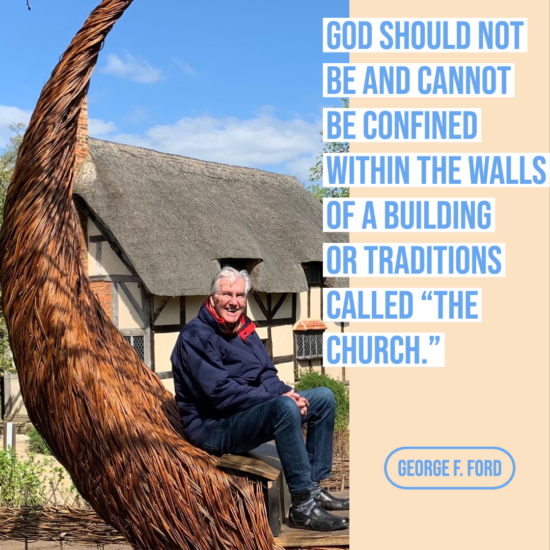The Great Commission given to us by Jesus Christ was to go and make disciples. But what is a Christian and disciple? Churches have many different definitions of a Christian (convert, adherent, learner, member, believer, attender, etc.) and they also have many different ways for a person to become a Christian (go through confirmation, attend a class on membership, get baptized, take communion, go to the altar, sign a membership card, etc.). But is a Christian a disciple of Christ?
Christian and disciple are related terms but are not synonymous. All disciples are Christians, but all Christians are not disciples.
When I took homiletics, two principles on preaching were stressed: Bring people into the kingdom through salvation (having a personal saving relationship with Jesus Christ.). Build these saved people up in the kingdom. (Get them anchored in the Word and active in doing the ministry of Jesus.)
The third aspect of this article is church attendance. This relates to both what is a Christian and what is a disciple. According to the research I’ve read (and I haven’t read all of the research), church attendance has been going down for several years. Church attendance is related to being a Christian and a disciple of Jesus, but not as it once was.
I’m a fourth generation Free Methodist. I was raised in the church, when if you were a Christian, you went to church at least four times a week. Sunday school, Sunday morning worship, Sunday evening service, and Wednesday night prayer meeting were the weekly basics … or you had your Christianity questioned. Be there or be square for sure. Plus, there was the youth meeting Sunday afternoon, missionary circle meetings during the week, cradle roll meetings once a month, etc. Then there were the ten-day to two-week revival services every night twice a year — attendance required events for sure. I have not mentioned the zone rallies, CYC, Bible quizzing, potluck dinners, birthday fellowships — need I go on?
Church was a big part of your life, if you were a Christian and a good Free Methodist — big in terms of number of events and number of hours committed. Then by shear time, church was your social life, second home, and, in some ways, your life.
However, over the decades, church programming has changed. Wednesday evening prayer meetings have migrated to a brief time on a weekday morning or have ceased to exist. The Sunday evening services have faded off most church calendars, and missionary circles and cradle rolls are only remembered in the minds of some of the older members and on the yellowed pages of the duly recorded minutes.
Churches need to know that people do things that work for them—meet a need. They do not have white space on their calendars each week that are open. Most peoples’ calendars are filled with extra obligations written in the margins and arrows pointing to times. What gets on their calendars are activities, meetings, and events that work for them by meeting a need. People are looking for things to erase or delete off their calendars, not add.
A minister, now deceased, was noted for saying, “Find a need and fill it.” It is hard to create a need or a desire in people for something they do not perceive as a need and have no interest in whatsoever. Calendar items must be relevant to the people.
Also, churches have to recognize that perhaps the ways they have been connecting or trying to connect with people have been failing or are not the best. So, the question is not, “How can we keep doing the things we are doing the same way, but relate to more people?”
Churches must realize that they’ve been slowly getting more and more out of touch with the culture. So, the question is, “How do we present the church and gospel in a new way that relates and connects with people?”
The good news of Jesus Christ doesn’t change, but how churches package and present it to the culture should change. The presentation should be in a way that people recognize it as something vital to the point they need to know more about it. Therefore, churches need to be “as wise as …” to market, present, and promote what the church has to offer in a way that will attract people to the church whether in-person or online.
Marshall McLuhan coined the phrase, “The medium is the message.” The church can have a great message, but if it communicates it by the wrong medium, the message will not reach the desired audience with the desired effect. Those who read the local newspaper and those who read the news online are usually not the same people — different audiences. Churches need to market to all audiences via the right medium.
People can become born again Christians whether they attend church in-person or online. People can be discipled whether they warm a pew or watch online at the kitchen table or their desk. It’s not either or, it’s both. Also, churches can minister to both groups of worshippers.
I recently did a short-term interim. There were more people watching online than were in the sanctuary. I believe that’s the wave of the future … and the future is now.
Also, online worshippers have the opportunity to listen/watch more than one sermon per week. Or they can listen to the sermon again they heard in-person on Sunday morning. Churches have many wonderful opportunities for ministry to the culture of this day.
One final thought. Fellowship with other believers is important. However, some Christians have a greater need for that fellowship than others. Online worshippers can have Zoom meetings with their small group, while others can meet in homes or at church for in-person group meetings.
God should not be and cannot be confined within the walls of a building or traditions called “the church.” Our God is an all-consuming presence willing and able to meet His people anytime, anyplace, in a meaningful way. Praise be to His Holy Name.
About the Author
George F. Ford is a fourth generation Free Methodist and retired elder.
